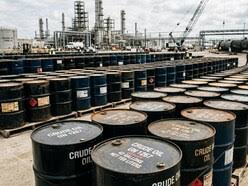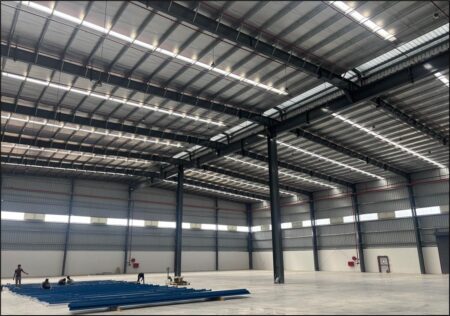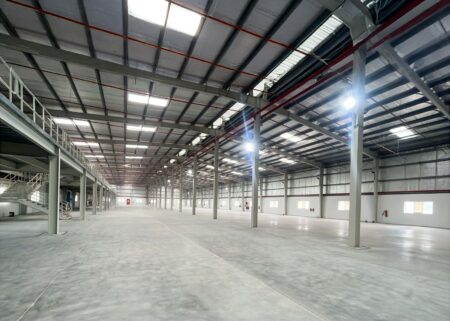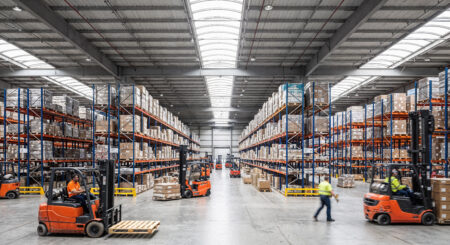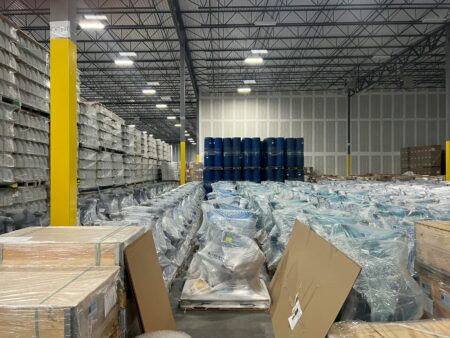Industrial real estate (IRE) in India plays a vital role, serving diverse industrial functions such as production, manufacturing, warehousing, data storage, and distribution. These properties are characterised by their spacious layouts, high ceilings, sturdy construction, and strategic proximity to crucial transportation infrastructure such as highways, seaports, and airports.
The Indian IRE sector has witnessed rapid growth, catalysed by the implementation of the Goods and Services Tax (GST) in July 2017. The simplified tax system streamlined interstate goods movement, leading to warehouse consolidation and the removal of the need for multiple facilities to comply with complex tax regulations.

A 2022 Colliers report revealed an 8 percent surge in demand for industrial and warehousing spaces across India’s top five cities, totalling 24.5 million square feet. Quarterly leasing activity showed resilience, increasing from 5.7 million square feet in 2021 to a robust 6.1 million square feet in 2022.
Knight Frank India’s property consultants project a 19 percent compound annual growth rate in the industrial and warehousing real estate sectors until fiscal year 2026. This growth is chiefly driven by e-commerce and manufacturing expansion, with prominent IRE development hubs in Mumbai, Delhi-NCR, Bengaluru, Chennai, Pune, and Hyderabad.
IRE’s pivotal role in the industrial sector imposes a great deal of responsibility on meeting its sustainability goals. The industry accomplishes this through the following measures spanning the sector’s planning, design, and management practices:
- “Design for sustainability” in industrial real estate entails employing eco-friendly materials, rainwater harvesting, energy-efficient design, and waste management to reduce environmental impact. This practice is prevalent in contemporary factories and warehouses, focusing on sustainable development.
- Green building certifications, such as IGBC, evaluate and enhance building environmental performance, delivering sustainability benefits and cost efficiency. Owners and tenants’ benefit from reduced operating expenses due to energy efficiency, simplified compliance, tax incentives, and improved occupancy rates. IGBC, initiated by CII, counts Horizon Industrial Parks among its founders, providing sustainability services like green building rating systems, certification, and training. Globally recognised certifications like LEED from GBCI, Green Star by Australia’s Green Building Council, and BREEAM from BRE in the UK promote eco-friendly construction practices, fostering sustainability and innovation.
- IRE developers implement energy efficiency in the design and implementation of buildings through energy efficiency retrofits (EERs), daylight-optimised building footprints, and natural light to minimise the use of artificial lights. An increasing number of developers are using sustainable HVAC (Heat, Ventilation, Air Conditioning) systems, such as geothermal heat pumps, which the Environmental Protection Agency considers the most energy-efficient, eco-friendly, and inexpensive heating and cooling systems.
Other chief ways to ensure sustainability in the design, building, and management of IRE include waste management and recycling, water use optimisation, use of renewable energy, support and enhancement of biodiversity, and sustainable construction materials.



